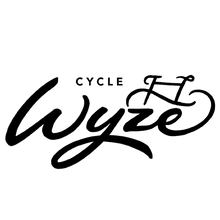Vegan vs. Vegetarian Cycling Nutrition: Key Differences and Tips
Vegan vs. Vegetarian Cycling Nutrition: Key Differences and Tips
Introduction
Cycling, whether competitive or recreational, demands a well-planned nutrition strategy to enhance performance and recovery. For cyclists who follow plant-based diets such as veganism or vegetarianism, tailoring nutrition to meet physical demands is crucial. This blog post explores the key differences between vegan and vegetarian cycling nutrition and offers practical tips to maximize your diet for better cycling performance.
Understanding the Basics
Vegan Cycling Nutrition
Vegan diets exclude all animal products. For vegan cyclists, this means relying solely on plant-based sources for protein, vitamins, and minerals essential for endurance and recovery. Key nutrients to focus on include protein, iron, calcium, and vitamin B12, which are abundant in animal products and need careful consideration in a vegan diet.
Vegetarian Cycling Nutrition
Vegetarian diets vary, but most include dairy products and eggs. This can make it easier for vegetarian cyclists to meet their nutritional needs compared to vegans. Key considerations for vegetarians include maintaining adequate iron levels and ensuring sufficient protein intake, especially if excluding eggs.
Key Nutritional Considerations
Protein Intake
- Vegan sources: Lentils, chickpeas, tofu, and quinoa.
- Vegetarian sources: All vegan options plus eggs and dairy products like Greek yogurt.
Iron Absorption
- Vegan approach: Pair plant-based iron sources like spinach or beans with vitamin C-rich foods like oranges to enhance absorption.
- Vegetarian approach: Same as vegan, with the added benefit of consuming eggs, which are a good source of heme iron.
Calcium and Vitamin D
- Vegan sources: Fortified plant milks, tofu, and leafy greens.
- Vegetarian sources: In addition to vegan sources, dairy products are excellent sources of calcium and often fortified with vitamin D.
Vitamin B12
- Vegan and Vegetarian solutions: Both diets may require supplementation as B12 is primarily found in animal products. Fortified foods are also a viable source.
Practical Tips for Meal Planning
Pre-Ride Nutrition
- Vegan option: A smoothie with banana, spinach, fortified plant milk, and a tablespoon of almond butter.
- Vegetarian option: Oatmeal with Greek yogurt and mixed berries.
During-Ride Nutrition
- Common to both: Easy-to-digest carbohydrates like dates or energy bars without dairy or honey.
Post-Ride Recovery
- Vegan recovery meal: Stir-fry with tofu, mixed vegetables, and brown rice.
- Vegetarian recovery meal: Same as vegan, but add a side of cottage cheese for extra protein.
Supplements and Hydration
- Electrolytes: Important for both diet types, especially during long rides.
- Omega-3s: Vegan cyclists might opt for algae-based supplements, whereas vegetarians might use fish oil.
- Hydration: Both groups should focus on consistent hydration, using water and electrolyte drinks as needed.
Conclusion
Both vegan and vegetarian cyclists can achieve optimal nutrition with careful planning. Understanding the unique needs and benefits of each diet type is key to tailoring your nutrition plan to support your cycling performance and overall health.
> "Tailoring your plant-based diet to your cycling routine can significantly enhance performance and recovery."
Stay energized and power up your rides with the right nutrition! For more tips and insights, keep following our blog.
Sign up today to receive updates directly to your inbox!






